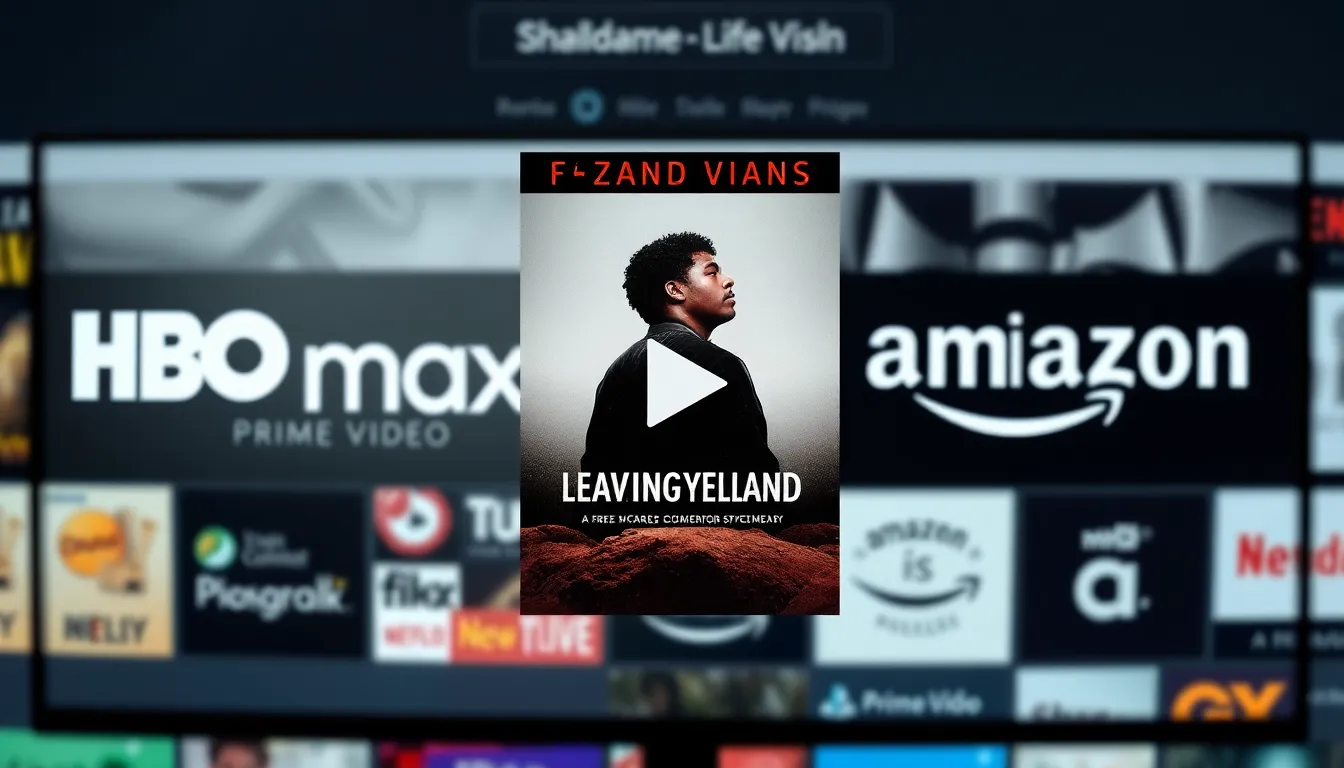Table of Contents
ToggleIn a world where every click can lead to a rabbit hole of revelations, Leaving Neverland has emerged as a must-watch documentary that’s both haunting and compelling. This gripping exploration dives deep into the lives of two men who claim to have been victims of one of the most famous figures in pop culture history. But don’t worry—it’s not all doom and gloom. Think of it as a rollercoaster ride through nostalgia, with a few unexpected twists that’ll leave viewers questioning everything they thought they knew.
As streaming platforms continue to flourish, the buzz around Leaving Neverland is impossible to ignore. Whether you’re a die-hard fan or just curious about the controversy, this documentary promises to deliver insights that’ll spark conversations long after the credits roll. So grab your popcorn and settle in—it’s time to uncover the truths that lie beneath the glittering surface of fame.
Overview of Leaving Neverland
“Leaving Neverland” delves into the accounts of Wade Robson and James Safechuck, two men who claim childhood abuse by Michael Jackson. The documentary unfolds their experiences, highlighting the long-term effects of trauma and the complexities of false memories. Each man’s story includes personal anecdotes, providing viewers with an intimate look at their lives before and after the alleged incidents.
As the film progresses, it intertwines archival footage and interviews that evoke a sense of nostalgia while provoking critical reflection. It challenges audiences to confront their perceptions of celebrity and the impact of fame on personal narratives. Those engaged with the documentary often find themselves grappling with conflicting emotions regarding Jackson’s legacy.
Available on various streaming platforms, “Leaving Neverland” has sparked extensive conversations about abuse and accountability within the entertainment industry. Viewers are prompted to consider the implications of the allegations not just for Jackson but for broader societal attitudes toward victims. The documentary’s structure, alternating between the two men’s perspectives, emphasizes the shared and individual nature of their stories.
Earning both critical acclaim and heated debate, “Leaving Neverland” stands as a landmark exploration of sensitive subjects. It serves as a testament to the courage of those who speak out against their abusers. Streaming access allows a wider audience to engage with the content, fostering discussions that resonate beyond the screen.
Streaming Platforms for Leaving Neverland

“Leaving Neverland” is accessible through various streaming platforms, allowing viewers to engage with the documentary easily. Availability varies by region, so exploring local listings ensures finding the right service.
Availability and Access
Most platforms hosting “Leaving Neverland” include HBO Max and Amazon Prime Video. Current subscribers of HBO Max can stream the documentary at no additional cost. Amazon Prime Video offers the film as a rental or purchase option, providing more flexibility. Platforms like Google Play and iTunes also present “Leaving Neverland.” These options make viewing simple and convenient for interested audiences.
Subscription Requirements
Accessing “Leaving Neverland” typically requires a subscription to HBO Max or a one-time payment for Amazon Prime Video rentals or purchases. Streaming services vary in their subscription models. HBO Max works on a monthly basis, while Amazon may include additional charges for rentals. Knowing these requirements helps viewers choose the best way to watch. Checking specific terms before subscribing enhances the viewing experience.
Critical Reception of Leaving Neverland
“Leaving Neverland” garnered significant attention from audiences and critics alike upon its release. The documentary’s poignant exploration of abuse sparked meaningful conversations about childhood trauma and the responsibilities of the entertainment industry.
Audience Reactions
Viewers responded with a mix of shock and empathy. Many found the testimonies of Wade Robson and James Safechuck compelling, leading to increased awareness about the complexities of abuse narratives. Online discussions highlighted personal connections to the topics explored. Some expressed disbelief over the allegations, igniting debates about Michael Jackson’s legacy. Social media became a platform for both support and skepticism, showcasing the documentary’s polarizing impact. A portion of the audience noted the emotional weight carried by the film, emphasizing the importance of listening to survivors’ stories.
Expert Reviews
Critics praised “Leaving Neverland” for its filmmaking approach and courage. The documentary’s intimate style drew acclaim for its raw honesty, allowing viewers to connect deeply with Robson and Safechuck’s experiences. Reviewers from various outlets highlighted its emotional resonance and thoughtful structure. Some recognized the film as a significant cultural moment, shifting discussions around accountability in entertainment. Others, however, raised concerns about the potential biases in the storytelling process. In essence, expert reviews reflected a range of opinions, yet most regard the documentary as a critical contribution to conversations about abuse and its lasting ramifications.
Controversies Surrounding Leaving Neverland
“Leaving Neverland” ignited numerous controversies upon its release, highlighting intricate discussions about the allegations against Michael Jackson.
Legal Challenges
Legal challenges surround the documentary, largely stemming from defamation lawsuits filed by Jackson’s estate. The estate contends that the film falsely portrays Jackson as a child abuser, seeking damages for alleged reputational harm. In 2019, an attempt to block the documentary’s release took place, underscoring the high stakes involved in this contentious narrative. Legal experts note the complexities of such cases, particularly regarding public interest and freedom of speech. While some argue that the documentary should receive legal protection under free expression, others emphasize the potential consequences for those implicated.
Public Backlash
Public backlash emerged as a significant aspect of the documentary’s impact. Many fans expressed outrage, vocally defending Jackson’s legacy and questioning the credibility of Robson’s and Safechuck’s claims. Social media platforms saw heated debates, with some users supporting the accusers while others dismissed the allegations as fabrications. Notably, a dedicated movement called “MJ Innocent” gathered momentum, reflecting a passionate defense of Jackson. Critics of the film raised concerns about its bias and the emotional toll on Jackson’s family. This backlash illustrates the ongoing division among audiences regarding the documentary’s portrayal of sensitive subject matter.
“Leaving Neverland” serves as a powerful catalyst for discussions on abuse and accountability in the entertainment industry. Its compelling narrative and emotional depth resonate with many viewers while challenging long-held beliefs about a cultural icon. The documentary’s availability on popular streaming platforms ensures that it reaches a broad audience eager to engage with its themes.
As conversations continue to unfold around the film, it remains a significant piece of work that not only highlights personal stories of trauma but also reflects societal attitudes towards victims. The responses it elicits underscore the importance of dialogue in addressing such sensitive issues, making it essential viewing for anyone interested in understanding the complexities of abuse and its impact on individuals and communities.







